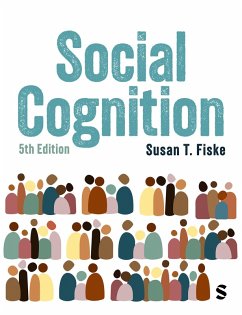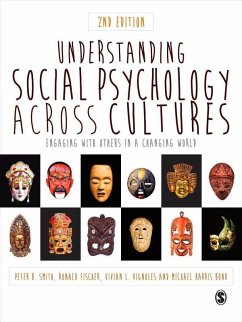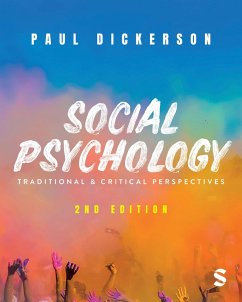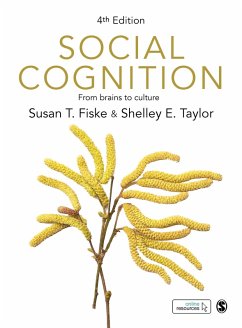
Handbook of Theories of Social Psychology (eBook, PDF)
Volume One
Redaktion: Lange, Paul A. M. Van; Higgins, E Tory; Kruglanski, Arie W.
Versandkostenfrei!
Sofort per Download lieferbar
88,95 €
inkl. MwSt.
Weitere Ausgaben:

PAYBACK Punkte
44 °P sammeln!
This innovative two-volume handbook provides a comprehensive exploration of the major developments of social psychological theories that have taken place over the past half century, culminating in a state of the art overview of the primary theories and models that have been developed in this vast and fascinating field.Authored by leading international experts, each chapter represents a personal and historical narrative of the theory's development including the inspirations, critical junctures, and problem-solving efforts that have effected the choices made in each theory's evolution as well as...
This innovative two-volume handbook provides a comprehensive exploration of the major developments of social psychological theories that have taken place over the past half century, culminating in a state of the art overview of the primary theories and models that have been developed in this vast and fascinating field.
Authored by leading international experts, each chapter represents a personal and historical narrative of the theory's development including the inspirations, critical junctures, and problem-solving efforts that have effected the choices made in each theory's evolution as well as the impact each has had on the canon of social psychology. Unique to this handbook, these narratives provide a rich background for understanding how theories are created more generally; how they're nurtured and shaped over time: and how through examination we can better understand their unique contribution to society as a whole.
The Handbook also illustrates how the various theories contribute to understanding and solving critical social issues and problems.
The Handbook of Theories of Social Psychology is an essential resource for researchers and students of social psychology and related disciplines.
Authored by leading international experts, each chapter represents a personal and historical narrative of the theory's development including the inspirations, critical junctures, and problem-solving efforts that have effected the choices made in each theory's evolution as well as the impact each has had on the canon of social psychology. Unique to this handbook, these narratives provide a rich background for understanding how theories are created more generally; how they're nurtured and shaped over time: and how through examination we can better understand their unique contribution to society as a whole.
The Handbook also illustrates how the various theories contribute to understanding and solving critical social issues and problems.
The Handbook of Theories of Social Psychology is an essential resource for researchers and students of social psychology and related disciplines.
Dieser Download kann aus rechtlichen Gründen nur mit Rechnungsadresse in A, D ausgeliefert werden.













